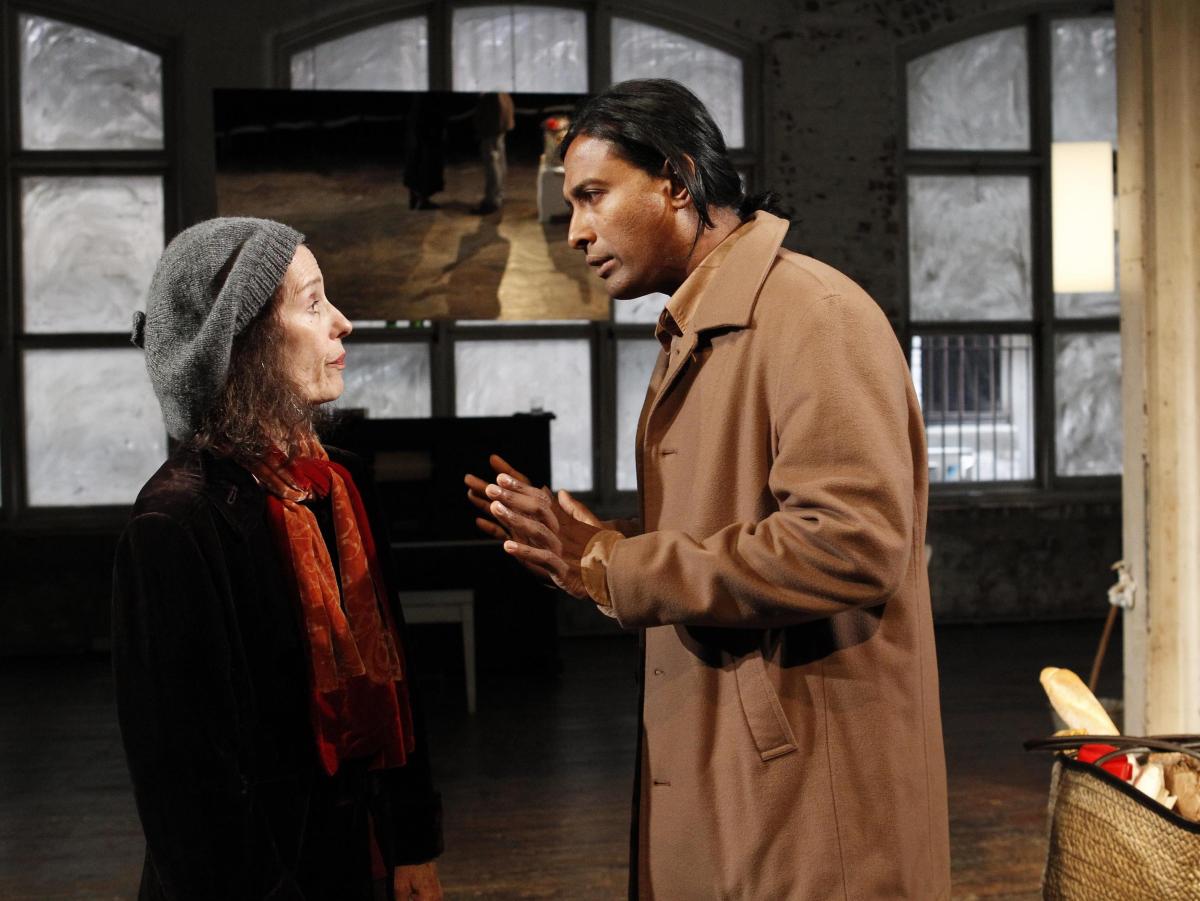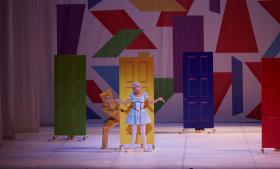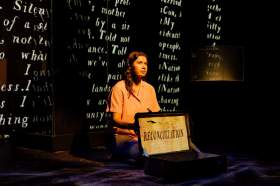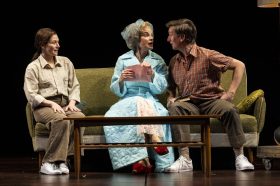Image: supplied
Dreamers has been heavily hyped around the return of the partnership between writer Daniel Keene and director Ariette Taylor. From 1997 to 2002, the Keene/Taylor Theatre Project caused a major stir in Melbourne’s independent theatre scene. Keene and Taylor return for the first Australian production of Dreamers, boldly tackling a potent topic that is ripe for discussion in Australia: race and discrimination.
In his writers’s notes from the Dreamers program, Keene said, ‘I wish that writing a play like Dreamers wasn’t necessary. But I live in a country where bigotry is defended, where the vulnerable are demonised, where those seeking help are imprisoned and where difference is reviled.’ As such, Dreamers circles around a blossoming romance between a young man of colour, Majid (Yomal Rajasinghe), and an older Caucasian woman, Anne (Helen Morse). Their May-December relationship faces growing hostility and fear from members of Anne’s community who are steeped in gross prejudices and intolerance. This bears close resemblance to the 1955 classic by Douglas Sirk, All That Heaven Allows, where a love affair between a widow and a gardener acts as a commentary on the American class system. German auteur Rainer Werner Fassbinder’s Fear Eats The Soul from 1974 and Todd Hayne’s 2002 update Far From Heaven similarly deal with issues of race in their respective portrayals of a tender, unexpected romance too.
As a love story, Dreamers is certainly intriguing. The leads put on a decent performance: Morse presents a vulnerable yet resilient Anne and Rajasinghe portrays Majid as a sympathetic, lonely figure. As a commentary on racism in Australia, however, Dreamers fails to live up to Keene’s lofty ambitions to reveal the bigotry and to defend the vulnerable.
Whereas All That Heaven Allows blatantly confronts the strict conventions of 1950s America, Dreamers possesses no specific time frame to directly go against. This can especially be seen in the characters’s clumsy dialogue, where for instance, a construction foreman (Marco Chiappi) says, ‘A racist is someone with two eyes and a brain’, or when a bar owner (Brigid Gallacher) asks, ‘On a scale of 1 to 10, how coloured do you think he is?’. Despite its murky intentions of satire, irony, or something else entirely, these deliberately rude comments are fairly perplexing.These audacious remarks were met with bewildered, rather than uncomfortable, laughter from the audience. This is chiefly because these inane declarations are not anchored by a specific context and hence, loses its edginess or critical bite, becoming seemingly more bizarre than offensive.
As Robert Reid successfully points out, Dreamers‘ lack of specificity does not translate to universality, and is is akin to being from another world, or maybe, another time. Certainly, if Dreamers was produced thirty years ago, for instance, this play could have been seen as progressive or even controversial. However, the play lacks credibility because of its peculiar way to take on issues of racism today. Racism is a highly complex, difficult terrain to approach in Australia, but admittedly, Dreamers‘s overbearing tone, and its occasional tendency to be moralistic, is an antiquated way to address this particular issue. Dreamers is anything but subtle, and proves to be a more tedious than riveting production.
Rating: 2 stars out of 5
Dreamers
fortyfivedownstairs
Directed by Ariette Taylor
Writer: Daniel Keene
Performers: Helen Morse, Paul English, Marco Chiappi, Jonathan Taylor, Nicholas Bell, Brigid Gallacher, Natasha Herbert and Yomal Rajasinghe
6 November – 30 November 2014





